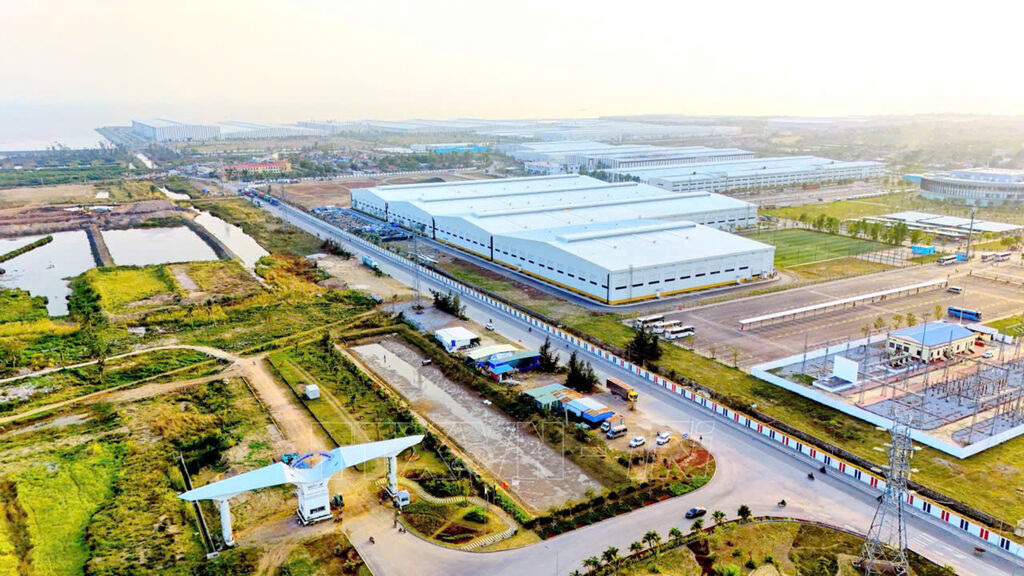 |
| Deep C Industrial Zones in Hai Phong city__Photo: VNA |
As part of rolling out the two-tier local administration model, the Ministry of Agriculture and Environment has issued a series of legal documents clarifying the division of powers in agriculture and environmental management. To help local authorities implement these changes, the Ministry’s Legal Department has released a handbook, Guidelines for Implementing Certain New Tasks and Authorities of Commune-level Administrations under the Two-tier Local Government Model – Agriculture and Environment Sector, which sets out the new assignments, relevant procedures, standard forms, and practical notes.
Effective as of July 1, 2025, the handbook details 93 tasks and authorities in the field of land management. Among these, the most notable is the expansion of commune-level administrations’ authority to decide on land recovery involving domestic organizations, religious institutions, overseas Vietnamese, foreign organizations with diplomatic functions, and foreign-invested economic organizations.
Previously, Article 83 of the 2024 Land Law vested provincial-level People’s Committees with the power to recover land from these entities in both violation cases (Article 81) and non-violation cases (Article 82). Commune-level administrations had no such decision-making power and served only in a supporting role, assisting with verification, public announcement, and dissemination of land-related information.
Under the new model, designed to streamline administrative procedures and improve management efficiency, commune-level People’s Committee chairpersons may now decide on land recovery from the above entities in the cases specified in Article 82 of the 2024 Land Law. These include voluntary return of land, termination of land use in accordance with law, inability to continue land use, and land posing risks to human life. The change is particularly significant for overseas Vietnamese, foreign-invested enterprises, and foreign organizations with diplomatic functions, which will now have certain land recovery decisions handled locally rather than at the provincial level.
The decentralization under the new model does not alter the principles of assignment of competence set out in the 2024 Land Law. Instead, commune-level administrations are assuming selected new functions through the delegation mechanism introduced with the two-tier local government model. While this shift is expected to shorten processing times and ease the workload of provincial authorities, it also heightens the need for robust inspection, supervision, and clear implementation guidance to safeguard the lawful rights and interests of organizations and individuals, and to prevent complex complaints and disputes from arising.- (VLLF)









